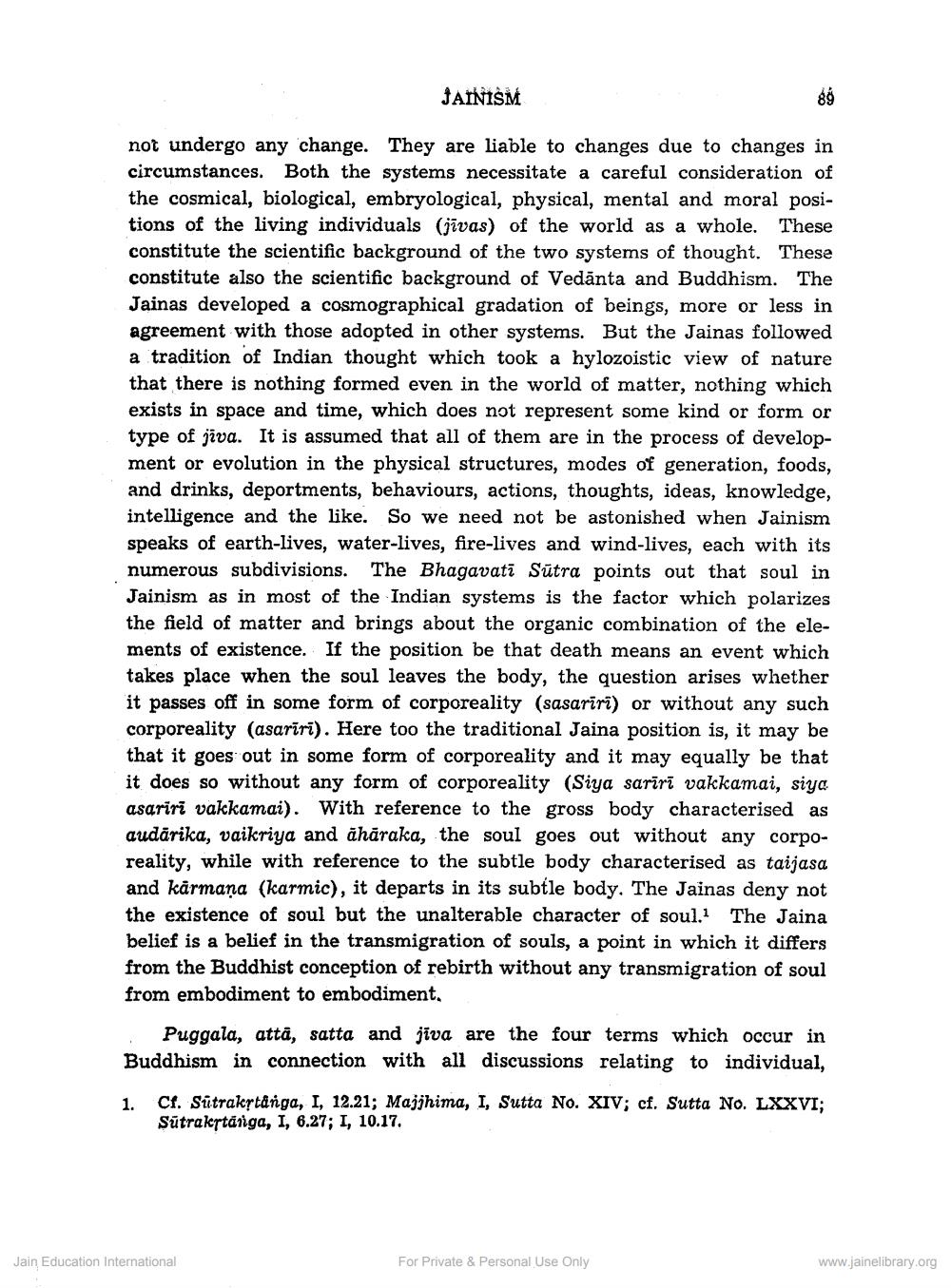Book Title: Fundamental Principles of Jainism Author(s): B C Law Publisher: Z_Vijay_Vallabh_suri_Smarak_Granth_012060.pdf View full book textPage 3
________________ JAINISM not undergo any change. They are liable to changes due to changes in circumstances. Both the systems necessitate a careful consideration of the cosmical, biological, embryological, physical, mental and moral positions of the living individuals (jīvas) of the world as a whole. These constitute the scientific background of the two systems of thought. These constitute also the scientific background of Vedānta and Buddhism. The Jainas developed a cosmographical gradation of beings, more or less in agreement with those adopted in other systems. But the Jainas followed a tradition of Indian thought which took a hylozoistic view of nature that there is nothing formed even in the world of matter, nothing which exists in space and time, which does not represent some kind or form or type of jiva. It is assumed that all of them are in the process of development or evolution in the physical structures, modes of generation, foods, and drinks, deportments, behaviours, actions, thoughts, ideas, knowledge, intelligence and the like. So we need not be astonished when Jainism speaks of earth-lives, water-lives, fire-lives and wind-lives, each with its numerous subdivisions. The Bhagavatī Sutra points out that soul in Jainism as in most of the Indian systems is the factor which polarizes the field of matter and brings about the organic combination of the elements of existence. If the position be that death means an event which takes place when the soul leaves the body, the question arises whether it passes off in some form of corporeality (sasariri) or without any such corporeality (asarīri). Here too the traditional Jaina position is, it may be that it goes out in some form of corporeality and it may equally be that it does so without any form of corporeality (Siya sarīrī vakkamai, siya asarīrī vakkamai). With reference to the gross body characterised as audārika, vaikriya and ähāraka, the soul goes out without any corporeality, while with reference to the subtle body characterised as taijasa and kärmaņa (karmic), it departs in its subtle body. The Jainas deny not the existence of soul but the unalterable character of soul. The Jaina belief is a belief in the transmigration of souls, a point in which it differs from the Buddhist conception of rebirth without any transmigration of soul from embodiment to embodiment. Puggala, attā, satta and jiva are the four terms which occur in Buddhism in connection with all discussions relating to individual, 1. Cf. Sitrakrtånga, I, 12.21; Majjhima, I, Sutta No. XIV; cf. Sutta No. LXXVI; Sūtrakrtanga, I, 6.27; I, 10.17. Jain Education International For Private & Personal Use Only www.jainelibrary.orgPage Navigation
1 2 3 4 5 6 7 8 9 10 11 12 13 14 15 16 17 18 19 20 21 22 23 24 25 26 27 28 29 30 31 32 ... 35
